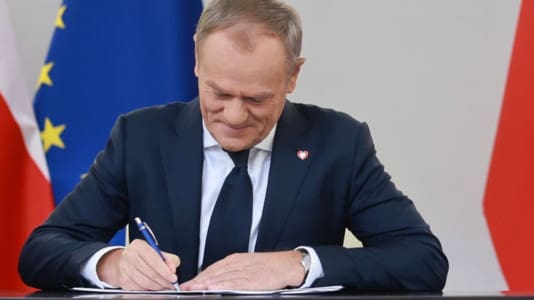The governing People’s Party for Freedom and Democracy (VVD) has received more than double the sum of high-value donations versus any other political party in the lead-up to the Dutch general election later this month, as wealthy financial backers seek to preserve the status quo in the Netherlands amid a rise of populism across Europe.
The VVD has declared €1.51 million in donations over the reporting threshold of €10,000 so far this year, according to government data cited by De Volkskrant newspaper, dwarfing the figures received by some of its closest political rivals in the national polls including Pieter Omtzigt’s New Social Contract (NSC), which has not received any donations of €10,000 or more.
GroenLinks, the left-wing environmentalists who are contesting the election in a political alliance with the Dutch Labour Party (PvdA) under the stewardship of former European Commission Vice President Frans Timmermans, received the second-highest total of high-value donations with €708,000.
The Socialist Party (SP) has raked in €666,000 from wealthy backers, followed by the socially liberal Democrats 66 (D66) with €462,000 and Thierry Baudet’s eurosceptic Forum for Democracy (FvD) with €240,000 in its coffers.
Political parties seemingly punching above their weight in the polls, taking into account the support of wealthy financiers, include right-wing populist Geert Wilders’ Party for Freedom (PVV), which reported just one high-value donation of €15,000.
Similarly, the agrarian populist Farmer–Citizen Movement (BBB), which took the local elections by storm back in March, has amassed a solitary large donation of €10,000.
The figures do not include donations under the reporting threshold and thus do not give a comprehensive picture of the war chests available to the political parties fighting for power in the hotly contested election scheduled for Nov. 22.
For example, the PvdA collects a considerable number of smaller contributions from its approximately 39,500 members.
Latest polling conducted by I&O published this week showed NSC had edged ahead of VVD, the party of retiring Prime Minister Mark Rutte and now run by Turkish-born Dilan Yeşilgöz-Zegerius.
Netherlands, I&O Research poll:
NSC~EPP: 19% (+2)
VVD-RE: 17%
GL/PvdA-S&D|G/EFA: 16%
PVV→ID: 11% (-1)
BBB~NI: 5% (-2)
D66-RE: 5% (+1)
SP→LEFT: 4% (+1)
PvdD-LEFT: 3% (-1)
Volt-G/EFA: 3% (-1)
FvD-NI: 3%
CDA-EPP: 3%
DENK-*: 3% (+1)
SGP-ECR: 3% (+1)
CU-EPP: 2%
JA21-ECR: 1%… pic.twitter.com/pAQ54XZNbl
— Europe Elects (@EuropeElects) November 8, 2023Timmermans’ left-wing alliance, GL-PvdA, is currently third in the projections, and Wilders’ PVV lies fourth despite the noticeable absence of substantial financial backing.
The Dutch establishment will be keen to avoid a shift toward populist parties as has been witnessed in several European Union nations over the past 12 months, including Italy, Slovakia, and even Sweden where a center-right administration is propped up by the right-wing populist Sweden Democrats.
Immigration has been an important issue on the campaign trail with both the top-polling parties vowing to cut migration numbers. However, many voters are skeptical of the VVD’s desire to actually do so considering it has led a government that has overseen a surge in new arrivals and contributed to an asylum crisis across the country.
One party that remains unequivocal on slashing migrant numbers is Wilders’ PVV, which has committed to an asylum quota of precisely “zero.”
On the campaign trail, the anti-Islam politician has lamented the policies of the current administration, claiming that “everything we hold dear has been given away. Our money, our safety, our homes.”
He has vowed to “reconquer the Netherlands” and “give it back to the Dutch,” rhetoric that some parties consider unpalatable.
While the leader of the VVD, current Justice Minister Yeşilgöz-Zegerius, has remained tight-lipped on involving Wilders in any future coalition government, NSC leader Pieter Omtzigt has ruled out any such pact.






